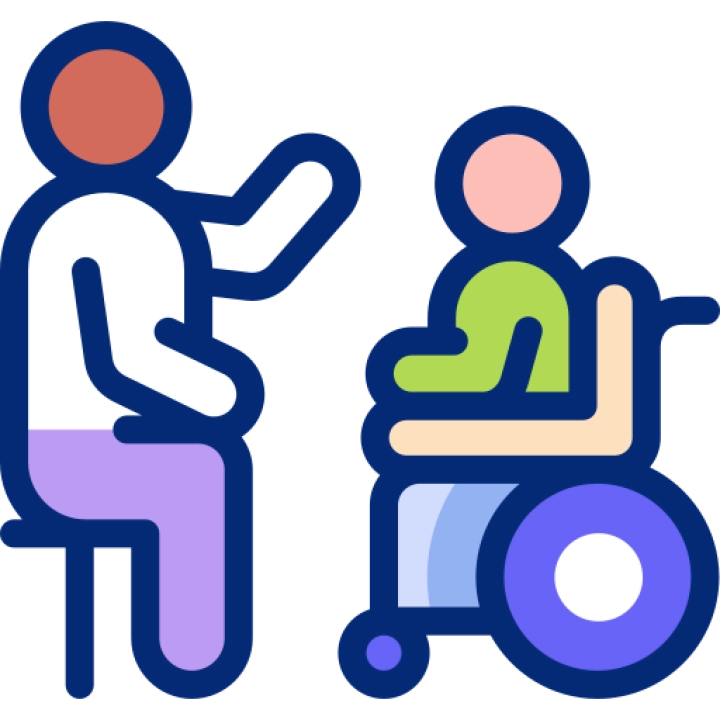College: Health Sciences
The Occupational Therapy specialization focuses on helping individuals to develop, restore, improve, and maintain skills necessary for daily life and work. Students gain skills in therapeutic interventions, activity analysis, human development, and rehabilitation, preparing for careers in healthcare, rehabilitation centers, schools, and community environments.
Learning Objectives:
- Understand the principles of occupational therapy and rehabilitation.
- Develop skills in therapeutic interventions and activity analysis.
- Learn about human development and the impact of disabilities on daily life.
- Explore assessment and evaluation techniques in occupational therapy.
- Analyze ethical considerations and professional standards in occupational therapy.
- Develop critical thinking, problem-solving, and communication skills.
- Gain practical experience through clinical rotations and fieldwork.
Main Curriculum:
- Introduction to Occupational Therapy - Overview of occupational therapy principles, history, and professional roles.
- Human Development and Occupational Science - Basics of human development and occupational science.
- Anatomy and Physiology for Occupational Therapy - Study of the human body and its functions relevant to occupational therapy.
- Kinesiology and Biomechanics - Principles of human movement and biomechanics in therapeutic interventions.
- Activity Analysis and Synthesis - Techniques for analyzing and modifying activities to enhance participation and performance.
- Assessment and Evaluation in Occupational Therapy - Methods for assessing and evaluating client needs and progress.
- Therapeutic Interventions - Principles of designing and implementing therapeutic interventions.
- Rehabilitation and Disability Studies - Understanding the impact of disability on daily life and rehabilitation strategies.
- Interventions in Mental Health and Psychosocial - Techniques to address mental health and psychosocial issues in occupational therapy.
- Ethics and Professionalism in Occupational Therapy - Understanding ethical considerations and professional standards in occupational therapy.
- Clinical Training and Fieldwork - Real-world experiences in healthcare settings, rehabilitation centers, schools, or community organizations.
- Research Methods in Occupational Therapy - Techniques for conducting research and evaluating evidence in occupational therapy.
- Capstone Project - A comprehensive project that applies occupational therapy skills, such as developing a therapeutic intervention plan, conducting a research study, or analyzing a clinical case.
Assessment Methods:
- Analysis of occupational therapy principles
- Human development and occupational science projects
- Exams in anatomy and physiology
- Kinesiology and biomechanics projects
- Projects on activity analysis and synthesis
- Assessment and evaluation projects
- Therapeutic interventions projects
- Rehabilitation and disability studies projects
- Mental health and psychosocial interventions projects
- Ethics and professionalism projects
- Clinical training and fieldwork reports
- Research methods projects
- Capstone projects and presentations
Recommended Textbooks:
- "Introduction to Occupational Therapy"
- "Human Development and Occupational Science"
- "Anatomy and Physiology for Occupational Therapy"
- "Kinesiology and Biomechanics"
- "Activity Analysis and Synthesis"
- "Assessment and Evaluation in Occupational Therapy"
- "Therapeutic Interventions"
- "Rehabilitation and Disability Studies"
- "Mental Health and Psychosocial Interventions"
- "Ethics and Professionalism in Occupational Therapy"
- "Research Methods in Occupational Therapy"
Prerequisites:
Basic knowledge of biology and psychology and an interest in occupational therapy.
Program Duration:
Typically 4-5 years to obtain a bachelor's degree in occupational therapy, including clinical courses and fieldwork.
Certification:
Graduates can obtain certifications such as:
- National Board for Certification in Occupational Therapy (NBCOT)
- State licensure for occupational therapists
- Certifications in specific occupational therapy specializations
Target Audience:
Aspiring occupational therapists, rehabilitation specialists, and healthcare professionals seeking careers in healthcare settings, rehabilitation centers, schools, community organizations, and related fields. This specialization equips students with therapeutic, analytical, and communication skills necessary for excelling in occupational therapy, supporting careers in various roles within healthcare settings, rehabilitation centers, schools, community organizations, and related fields.




